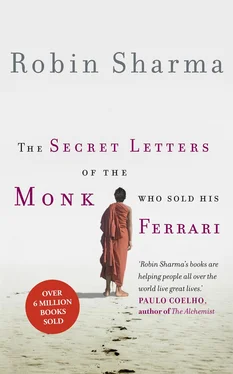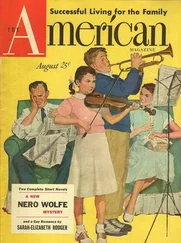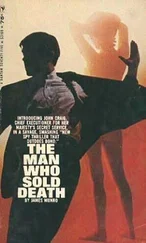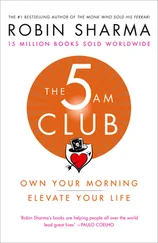“Come,” said Ahmet, walking over to the windows. “Let me show you.”
I hadn’t appreciated how high up we had climbed in the car, or where Ahmet’s building was located, but as I gazed out the living room windows, I became immediately aware of how wonderful his investment had been. Stretched in front of me was the breadth of one of the most amazing sights I have ever seen.
“There,” said Ahmet, pointing to the river below us. “That river, that is the Golden Horn. There’s the Atatürk Bridge and the Galata Bridge. My little boat is docked in that harbor there. And to your left, that great body of water is the Bosphorus Strait. My city continues on the other side of it. But here you stand in Europe. Once on the other side of Istanbul, you stand in Asia.”
I looked across to the Asian continent, but then back to the skyline directly in front of me.
“Ah, yes,” said Ahmet. “That is something, isn’t it? The old city. Sultanahmet. The Bazaar Quarter. Seraglio Point.”
I could see in the distance two enormous complexes with domed roofs and minarets, gardens and walls.
“Hagia Sophia?” I asked. It was the only thing I really knew about Istanbul. The great domed church built by Emperor Justinian when this place was Constantinople, the seat of the Roman Empire, the adoptive home of the Christian Church. It had been converted later into a mosque, the minarets added and the interior modified, but the original mosaics remained. Still stunningly beautiful I had heard.
“The one just to the left,” said Ahmet, pointing. “The Blue Mosque behind her. And the Hippodrome, Topkapi Palace, the Cistern, museums—so much to see.” Ahmet swept his hand back and forth across the vista in front of us. “But this afternoon, I will take you to the Spice Bazaar and the Grand Bazaar before we head for the boat.”
“The boat?”
“Ah, yes,” replied Ahmet, moving away from the window. “I’m sorry. I don’t have the talisman here. It is at my village home, in Anadolu Kava  i.”
i.”
I had forgotten all about the reason for my visit.
“We could drive, but what’s the point, really?” Ahmet continued. “A boat is the best way to get there. My son has the boat out this morning for a private tour, so we will go tonight and come back tomorrow morning.” Ahmet was gesturing for me to follow him. “Now I will show you where you can clean up. Then we will have tea and lunch before we head out to the bazaar.”
THE FIRST THING that hit me when we walked into the Spice Bazaar was the fragrance. It was like walking through some sort of aromatic garden, the scents shifting with every step we took, mingling, each overtaking the next.
Stalls followed one after another. There were mounds of dates and other dried fruits, all sorts of nuts, great pyramids of softly colored halvah. There were cylinders of nougat and torrone, and an astonishing assortment of jewel-colored Turkish delight—lokum, Ahmet told me it was called here.
Counters were filled with open boxes of tea. Small hills of ground spices spilled from the front, stall after stall—turmeric, cumin, cardamom, paprika, nutmeg, cinnamon.
Ahmet bought some dried apricots, dates and figs before we left and made our way to the enormous stone complex that housed the thousands of shops of the Grand Bazaar.
The Spice Bazaar had dazzled my senses, stupefying me with its exotic aromas. I had been moving about utterly absorbed by my surroundings, not thinking at all about myself or my life. But here, in the Grand Bazaar, my mind kept jumping to the people I missed. As I walked through the huge, endless arched corridors, I saw so many things that Annisha might like—mosaic lamps, delicate silk scarves, intricately patterned ceramics—and everywhere a riot of color. That was one thing that had struck me when I first met Annisha. No matter what she wore, there was always a splash of vibrant color somewhere on her—bright green earrings, a purple scarf in winter, a brilliant orange beret. Her apartment was like that, too—an eclectic assortment of things, a jumble of pattern and hues, chaotic yet surprisingly harmonious. Of course I would be traveling for the next few weeks, so I couldn’t buy anything bulky. And I was overwhelmed by the choices. Eventually I picked out a nazar necklace for her—the glass “evil eye” bead is believed by many to ward off harm—and for Adam I bought a little embroidered vest that I thought he’d get a kick out of.
The carpet sellers most distracted me. They called out each time I passed, and each time I found myself slowly looking over the beautiful carpets.
Ahmet noticed my attention. “Ah, yes,” he said. “You must come back someday when you have more time, when you can really shop and bargain. Choosing a good carpet is not easy—you must learn about the art, the weaving and knotting, the fiber, the dyes. But you must also learn how to value them—and how to bargain for them. I would love to instruct you in this.”
Ahmet’s eagerness to teach me reminded me of my parents. They were a dynamic duo who encouraged lifelong learning. Mom was a voracious reader, and when my sister and I were in elementary school, she took a job at a small bookstore. She came home with so many books that I’m sure the store kept her employed so they wouldn’t lose their best customer. She bought fiction for herself, nonfiction for my dad, and picture books and early readers for Kira and me.
Dad was delighted with this development, and he devoured the reading material with glee. But Dad’s enthusiasm didn’t stop there. Nothing gave Nick Landry more pleasure than sharing his knowledge. He was, in fact, an elementary school teacher, but teaching was more than his job—it was his passion. Between the two of them, my parents created a classroom atmosphere wherever we went—much to the consternation of their children.
Every year, we took one family trip during the summer holidays. It was never anywhere exotic, but Mom and Dad always did their research before we got there. Hiking through the woods, Mom would pull a field guide from her knapsack and tell us how Jack pines actually needed the intense heat of forest fire to open their cones so they could seed themselves. Then Dad would explain how a beaver constructed its dam, or how the hills we climbed were once the shores of ancient lakes. At any historical site, Mom and Dad knew more about the place than the guides. Even a theme park could be a lesson in centrifugal force or pop culture references.
Mom and Dad seemed almost addicted to information and ideas, and our travels were always punctuated with exclamations. “Isn’t that something!” Mom would say anytime we made a discovery. And Dad loved it when my sister and I showed curiosity. “Great question!” he would blurt out with joy and pride when we asked anything at all. You would have thought we had just discovered a cure for cancer.
These days I remember that enthusiasm with fondness, but as a child I often wearied of it. And when I hit my teens, our little excursions, the constant instruction, the endless trivia were like nails on a blackboard. Slumped in the backseat of a hot car on a summer afternoon, while Dad gave us a heartfelt account of the Erie Canal, Kira and I would roll our eyes, raise our index fingers to our temples and fire imaginary guns.
This place, this city, I thought sadly, would have fascinated my parents. This was the kind of trip they always dreamed about, the kind of place they hoped to visit. That was their big plan for their retirement: travel. In fact, when Dad left work, his colleagues presented him with a set of luggage. In the months following their retirement, travel books sprouted up around the house like mushrooms on a wet lawn. Stacks piled up beside his favorite living room chair, volumes spilling out from under his bedside table, brochures and maps peeking out of the magazine rack in the bathroom—Ireland, Tuscany, Thailand, New Zealand. Dad printed off itineraries and posted them above his computer desk. He and Mom were planning to be on the road for almost half a year.
Читать дальше

 i.”
i.”










